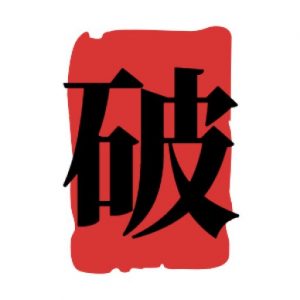instead of后面接什么 Insteadof后面加什么be动词
在英文中,"instead of" 是一个常用的表达,意味着“代替……”或“而不是……”,但其用法有时会令人困惑。我们先从“instead of”的用法谈起。
1. “Instead of” 作为介词短语,后面可以接名词、代词、动名词、介词短语,甚至是形容词、副词、带有对称结构的不定式或各种形式的谓语动词等。
比如:
我们只喝了汤,而没有吃全餐。
We just had soup instead of a full meal.

你愿意打出租车而不是乘公车吗?
Would you like to take a taxi instead of a bus?
我总是很晚才上床睡觉。
I go to bed late instead of early.
水公司应集中精力减少浪费,而不是修建新水库。
Water companies should concentrate on reducing waste instead of building new reservoirs.
他们抬高了价格和减少了生产,而不是降低成本。
They raised prices and cut production, instead of cutting costs.
折扣的大部分被零售商占据,而不是传递给顾客。
Much of the discount is pocketed by retailers instead of being passed on to customers.

不要整天在家里无所事事,应该出去找份工作。
Instead of moping around the house all day, you should be out there looking for a job.
不要一边想着工作无聊一边去上班,应该保持积极态度。
Instead of going to work thinking that it will be totally boring, try to be positive.
别像没头苍蝇一样东奔西跑,把力气用在更有效的地方。
Instead of running around like a headless chicken, use your efforts in a more productive way.
这不仅无法挽救美元信誉,还会让情况变得更糟。
Instead of saving the credit of the dollar, this can only make things worse.
应该是我问你,而不是你问我。
It's me that should ask you instead of you asking me.
政府没有承认错误,只是草率处理了问题。
Instead of the Government admitting its error, it just tinkered with the problem.
鼓励学生培养批判性思维,而不是不加质疑地接受各种观点。
Students are encouraged to develop critical thinking instead of accepting opinions without questioning them.
现在我可以步行去上班,而不是开车了。
Now I can walk to work instead of going by car.
你想打出租车而不是乘公车吗?
Would you like to take a taxi instead of going by bus?
【注】“instead of” 后面通常不接不定式,但在平行结构中可以接不定式。
2. 有时“instead of” 也起到连词的作用,用于连接两个相同的语法结构。
例如:
为什么新政策强调采取强硬手段,而不是采用外交上的怀柔策略?
Why the new emphasis on sticks instead of diplomatic carrots?
当权者平心静气地劝说,而不是施加压力。
The authorities used quiet persuasion instead of the big stick.
看起来是一个无辜的旁观者当了你的替死鬼。
It looks like an innocent bystander was killed instead of you.
每天锻炼使他看起来更年轻,而不是显得苍老。
Taking exercise every day makes him look younger instead of older.
但这位商人的情况没有好转,反而进一步恶化了。
But the businessman grew worse instead of better.
船上的发电机坏了,泵不得不手动操作,而不是机械操作。
The ship’s generator broke down, and the pumps had to be operated manually instead of mechanically.
我们在学习如何面对死亡,而非逃避其现实。
We are learning how to confront death instead of avoiding its reality.
天气暖和时,他经常在树下读书,而不是在图书馆里。
In warm weather he often reads under a tree instead of in the library.
他晚上学习,而不是白天。
He studies in the evening instead of during the day.
结果,白银开始流出,而不是流入这个国家。
As a result, silver began to flow out of, instead of into the country.
你应该出去玩,而不是在室内工作。
You should be out playing instead of working indoors.
他提议做些工作,而不是看电视。
He proposes to do some work instead of to watch television.
她问我是否想做饭,而不是写信。
She asked me whether I wanted to cook instead of write.
一个鼓励的话可能会让我尊敬他,而不至于憎恨他。
A word of encouragement might have made me respect instead of hate him.
她让孩子们在教室里读书,而不是让他们出去。
She had the children read in the classroom instead of go out.
那增加了我们的勇气,而不是削弱它。
That increased instead of decreased our courage.
3. 当“instead” 单独使用时,作为副词,意味着“用……来代替”或“用……来顶替”,通常出现在句末。
例如:
我们没有咖啡了,你想喝茶吗?
We’ve no coffee. Would you like tea instead?
坐车要几天时间,不如我们改乘飞机吧。
It will take days by car, so let’s fly instead.
我放弃了史诗,转而写了这个小故事。
I gave up my epic and wrote this little tale instead.
我不喜欢这个,把那个给我吧。
I don't like this one; give me that instead.
去年夏天我去了法国。今年我要去意大利。
Last summer I went to France. This year I’m going to Italy instead.
4. 使用“instead”时,句子中的动作是被“取代”的,而“instead of”则表示被“舍弃”的动作。可以将“instead” 的句子改为“instead of”的结构。
例如:
她从不学习,而是整天打网球。
She never studies. Instead, she plays tennis all day. → Instead of studying, she plays tennis all day.
他没有把钱给约翰,而是给了我。
He didn’t give John the money, but he gave it to me instead. → Instead of giving John the money, he gave it to me.


